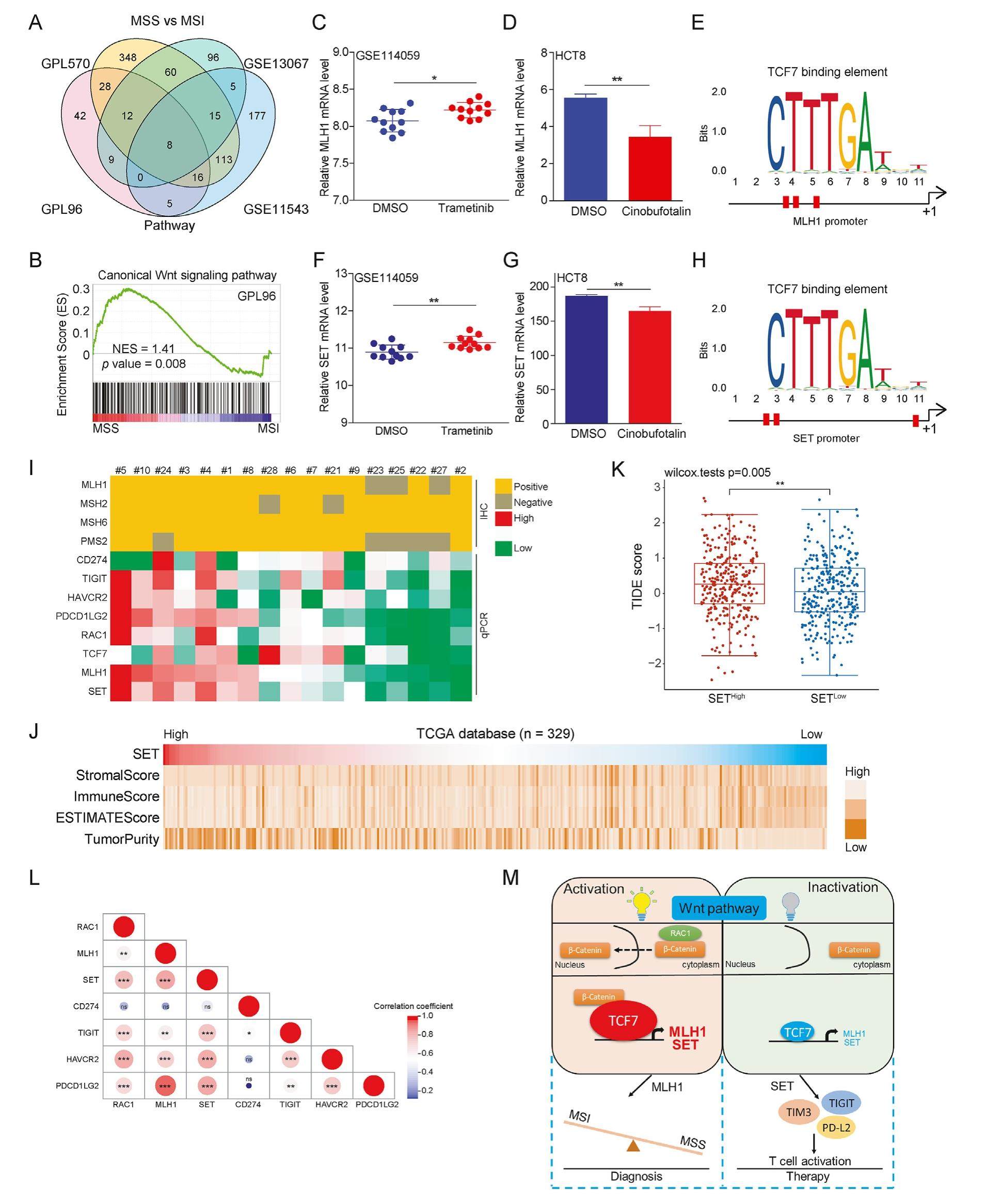
The dysfunctional Wnt pathway down-regulates MLH1/SET expression and promotes microsatellite instability and immunotherapy response in colorectal cancer


The tumor heterogeneity results in different clinical characteristics of tumor patients, so precise therapy is a popular treatment strategy clinically. Microsatellite instability (MSI) is found in 10% e15% of colorectal cancer (CRC) patients and exhibits different clinical outcomes than microsatellite stable (MSS) patients. Surprisingly, MSI patients have a better prognosis than patients with stable microsatellites. MSI patients exhibit clinical features that are not responsive to chemotherapy, however, MSI patients showed excellent responses to immunotherapy. Although the subtype classification of MSI is beneficial to the clinical treatment of CRC patients, the mechanism of MSI remains unclear.
